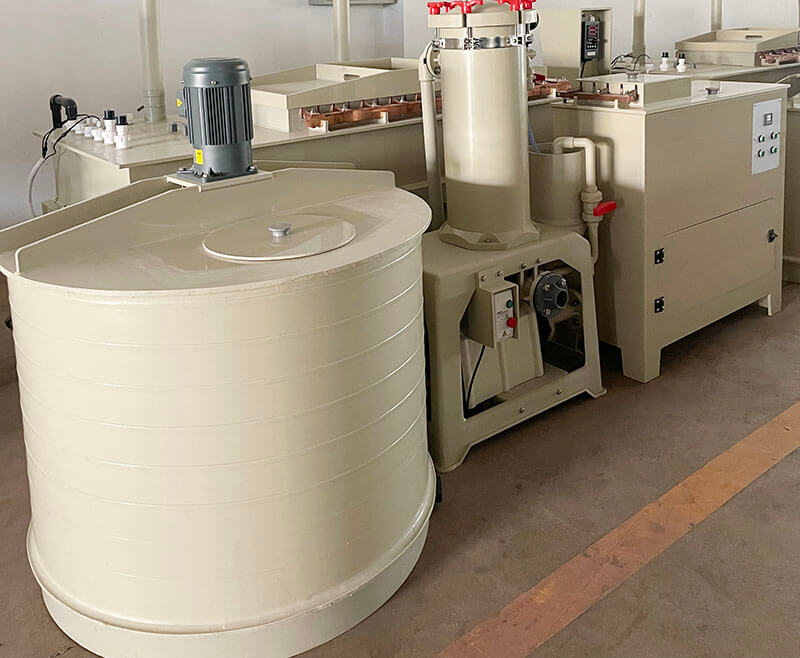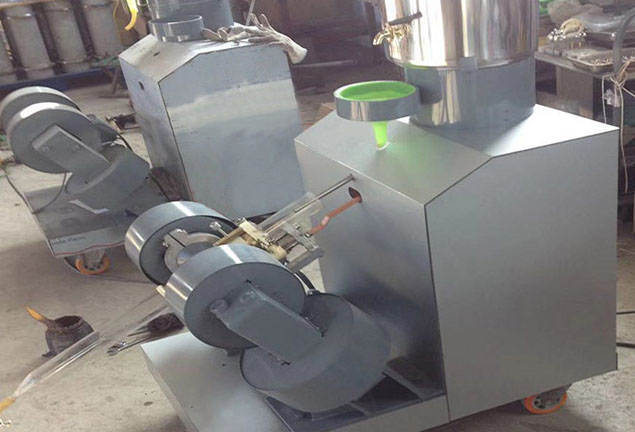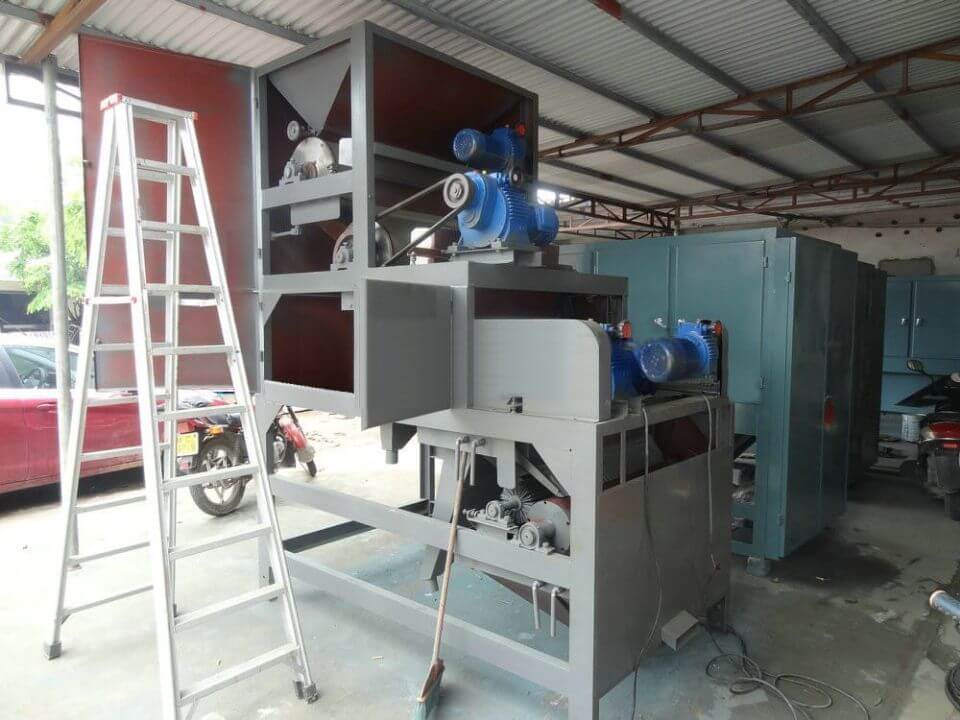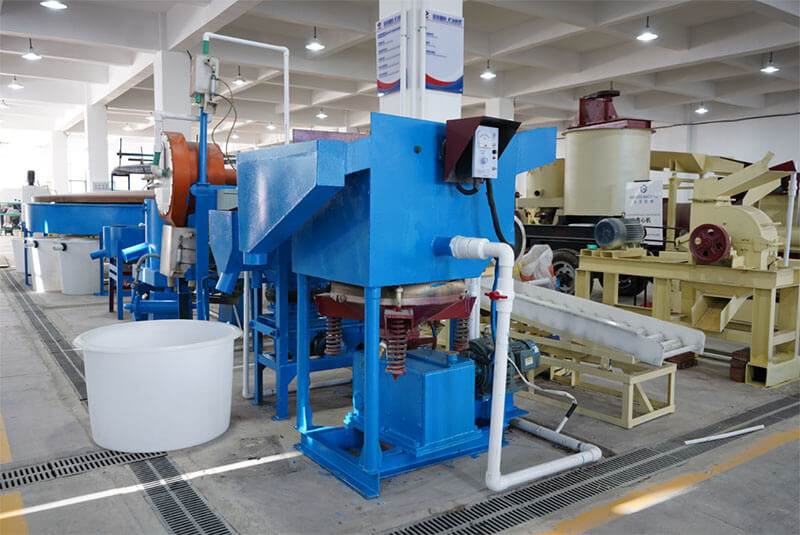The sample preparation room generally includes lab crushing equipment, sample divider equipment, screening equipment, and so on. Laboratory sample preparation equipment has wide applications in laboratory research and sample preparation in multiple industries like geology, minerals, metallurgy, materials, and construction. It provides reliable sample preparation equipment for scientific research and industrial production.
Lab Crusher
Crushing equipment for mechanical sample making will reduce the labor intensity of workers and improve the efficiency of sample making.
(1) Lab jaw crusher
The laboratory jaw crusher is also known as a laboratory crusher. It is a machine for crushing solid samples such as rocks or crystals into powder or dust. Its design aims to economically reduce the particle size of typical aggregates and ordinary minerals at the required yield for laboratory testing. The laboratory jaw crusher is suitable for medium-sized crushing of various ores and bulk materials. The maximum compressive strength is 320Mpa. It is usually the first choice for primary crushing. This machine is suitable for intermediate coal crushing with larger particle sizes. If it requires crushing the material below 25 millimeters, the crushing ratio is around 4-5, then we can adjust it to 8-9.
(2) Lab hammer crusher
The hammer crusher uses a high-speed rotating hammer body to crush materials on the collision surface. It has the advantages of a simple structure, a high crushing ratio, and high production efficiency, adapting to dry and wet crushing. Hammer crushers are suitable for crushing various medium hard and weakly abrasive materials, like coal, ceramics, mud blocks, and other materials. Its crushing method is chopping crushing. The small block size of the crushed material should be less than 10-60 millimeters of the crushing machine model feeding size. The compressive strength of crushed materials is ≤ 800MPa.
(3) Lab roll crusher
The lab roller crusher is a coal sample crushing machine with a feeding particle size of 10-20mm and a discharge particle size of less than 1mm. The laboratory roller crusher is suitable for crushing intermediate and fine-sized raw materials, like coal, coal anhydrite, coke, limestone, sulfur ore, etc. Its crushing method is roller compression. The material should be brittle, and the shape of the crushed material should be regular flakes. The compressive strength of the crushed material should not exceed 60MPa, with a hardness level of 3. If the moisture content of the material exceeds 6%, particle bonding will occur. This machine has a reasonable design structure, convenient maintenance, simple operation, and a sealed design. It has wide applications in sampling and testing industries such as coal, coking, mining, and metal smelting.
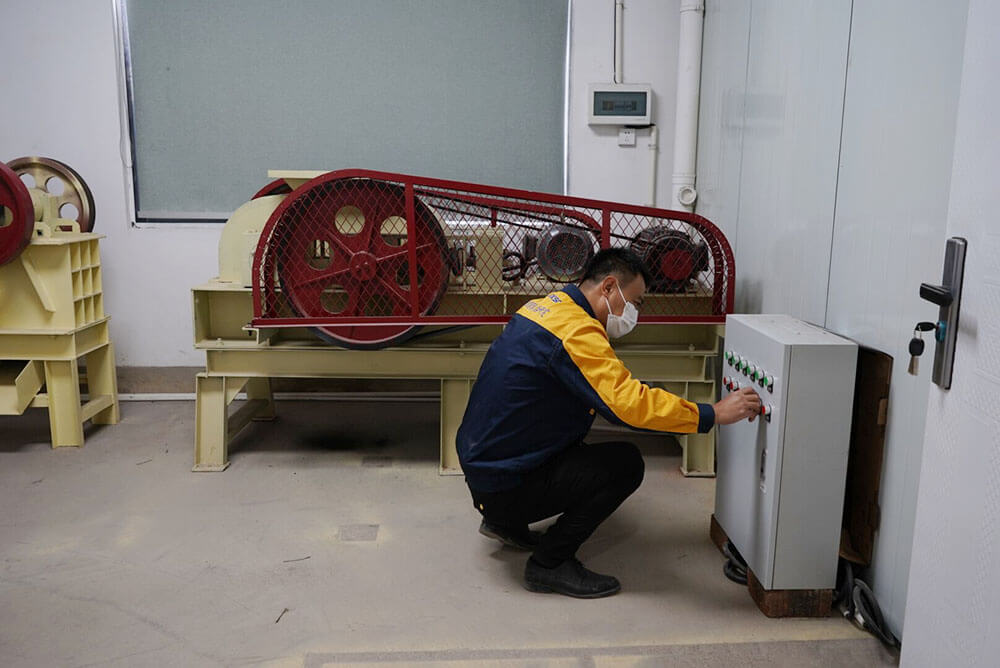
(4) Lab Sealed sample pulverizer
The sealed vibration sample pulverizer is a new type of fine-grinding equipment successfully developed in recent years. It can directly grind 100 grams of coal sample to below 0.2 millimeters in one time with high efficiency in a few seconds. This machine is specially designed for crushing and grinding non-metallic minerals with certain hardness. Within 2-6 minutes, grind the material into 80-200 mesh (0.175-0.075mm) micro powder, and directly use them for laboratory testing. The Type 1 machine can produce one sample at a time. The 2L model can make two different types of samples at the same time. The Type 3 model can grind three different samples simultaneously, and so on. The samples that reach the required particle size will go to laboratory testing departments in various industries.
Screening equipment
The sample preparation room should be equipped with a complete set of sieves with various sizes of meshes. According to particle size, sieves include two categories.
(1) The sieve is used for large amounts of material screening.
- Its mesh size is relatively large, with commonly used mesh sizes of 150, 120, 50, 25, 13, 6, 3, and 1 millimeter. It is for screening tests in the production of coal samples.
- The commonly used sieves for preparing general coal samples are round hole sieves, with sizes of 25, 13, 3, and 1.5 mm. Square hole sieves with sizes of 3 x 3, 1 x 1, and 0.2 x 0.2 millimeters.
(2) Small screening uses a sieve (standard sieve) to screen.
- Fine coal particles below 1.5 millimeters up to 0.04 millimeters will use a standard sieve. The standard sieve is made of circular woven metal copper mesh with a mesh diameter of 150-300mm.
- The standard sieve holes mean the mesh. The outline refers to the number of sieve holes on a straight line of one inch. The mesh size is related to the number of sieve holes per unit length, and to the wire diameter of the sieve mesh. A sieve system is formed based on the principle that the wire diameter of the sieve is equal to the diameter of the sieve holes. In this way, we know the number of sieve holes on a length of 25.4 millimeters, making it easy to represent the size of the sieve holes in millimeters.
Sample splitting machine
(1) Different-sized sample dividers are composed of small grooves with slopes. The width of the grooves is generally three times the maximum particle size of the coal sample, and the slope is not less than 60 degrees. The number of small slots should be even.
(2) Cross-shaped dividing template. It is made from thin iron plates or wooden boards for quartering and blending.
JXSC lab mineral processing equipment manufacturer has more than 38 years of experience in mining processing. We provide various lab mining equipment including gravity-separating equipment for processing minerals such as gold, tin, tungsten, lead, zinc, tantalum, niobium, iron, manganese, silver, titanium-iron, etc. Lab machines include laboratory jaw crusher, hammer crusher, roller crusher, grinding equipment, lab gravity separator, screening, washing equipment, etc. Welcome to consult!

